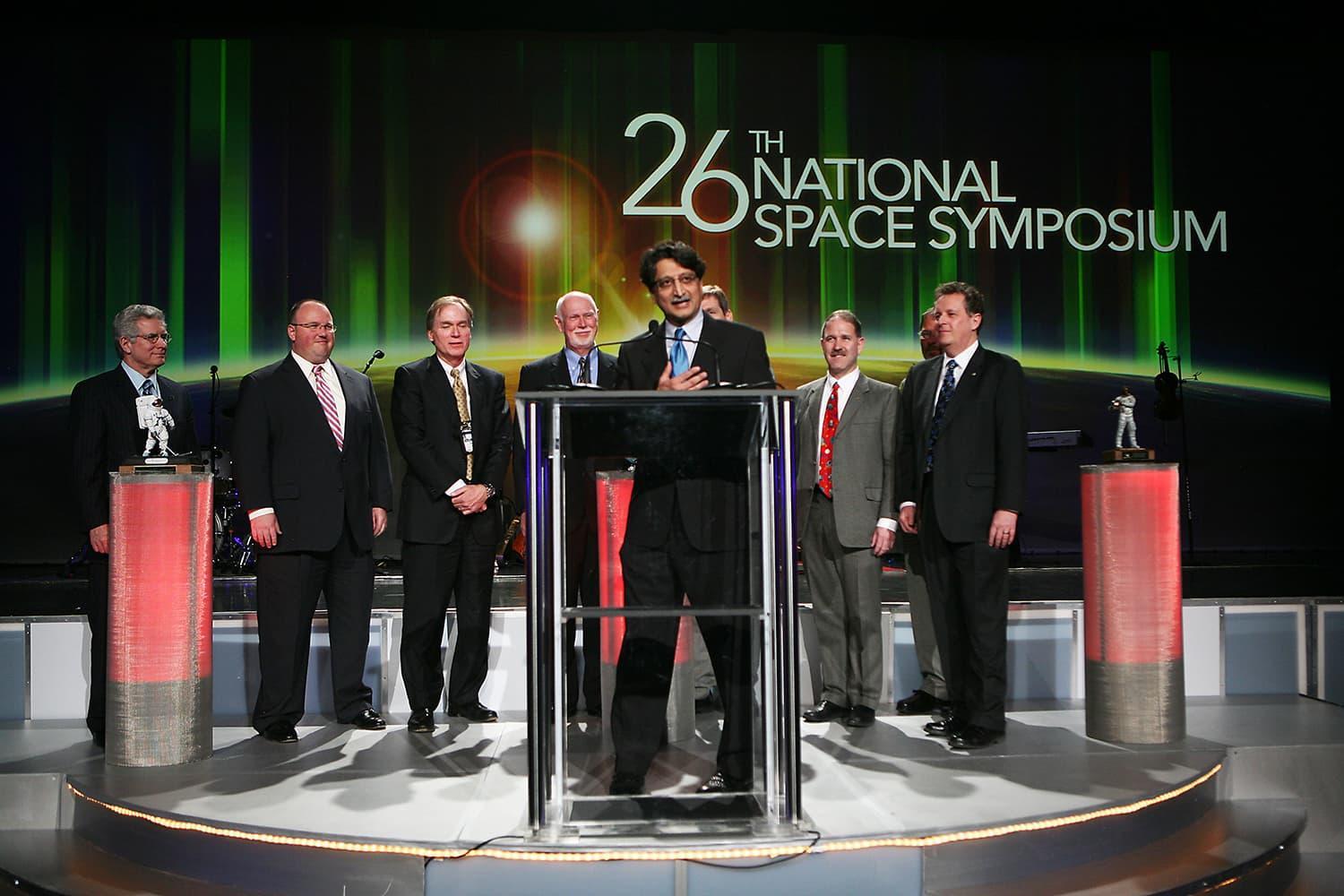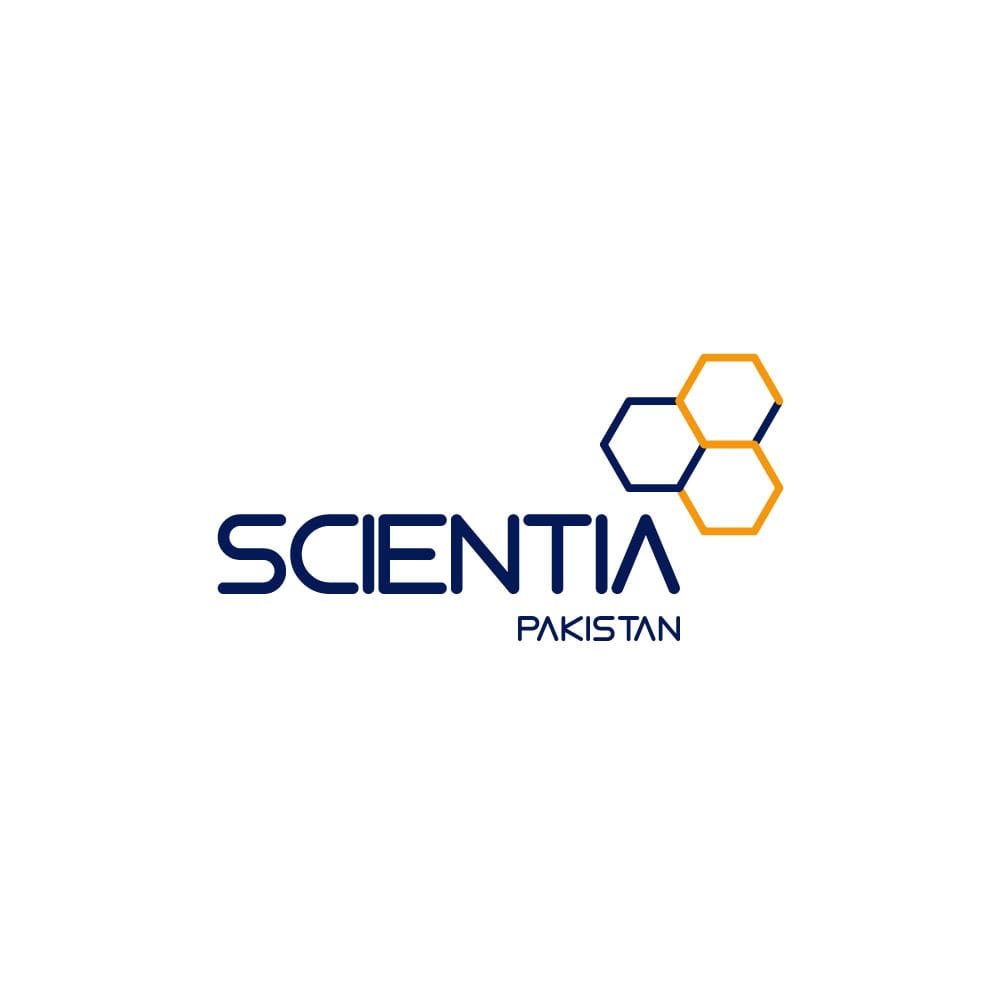Mansoor “Moonie” Ahmed, was brought up in Peshawar, Pakistan in the northwest region on the fringe with Afghanistan. He retired from NASA where he worked as an Associate Director of Astrophysics. He anticipated Division and Program Manager for the Physics of Cosmos and Cosmic Origin Programs.
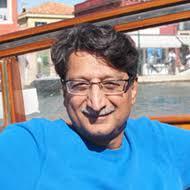
Mansoor has a B.S degree from the University of Maryland and M.S. from George Washington University, both in the mechanical building. He received a couple of prestigious awards like NASA Exceptional Service Medal. Mansoor has worked as a part of the US government Senior Executive Service (SES) in 2007.
Mansoor is at present filling in as the Associate Director of the Astrophysics Projects Division just as the Program Manager for the Physics of the Cosmos program and the Cosmic Origins program at NASA Goddard Space Flight Center.
Mansoor Ahmed has spent the majority of his vocation in serving the Hubble Space Telescope (HST) program in various limits, including the Flight Operations Manager and the Project Manager for HST tasks. He has taken an interest in everything except one Hubble adjusting missions. During a short spell far from HST, Mansoor has filled in as the Mission Manager for the Compton Gamma Ray Observatory Orbit mission and afterward as the appointee venture administrator for the James Web Space Telescope.
Here are some excerpts of his conversation with Team Scientia.

You were born and grew up in Peshawar, let us know about your family background? Do you recall any interesting story regarding your childhood/teenage or by any of your elder relatives that you think worth talking?
My father was a Subedar-Major in the army. We lived in Peshawar city, near Fort Balahisar. For the first 5 years of education, I went to a Christian mission school and from sixth grade onwards, I went to the Government High School # 1in Peshawar city. Our house was across the street from Naaz cinema, the only cinema in the city that played English language films. This is where I got my very first exposure to films. My father took me to see the film “The Vikings” and I was hooked from then on.
Even though I didn’t really understand any English. My answer to the question “what do you want to be when you grow up?” was; I want to become the ticket collector for Naaz cinema so that I can see every film playing there. After watching a film, I would tell the story, scene by scene, in detail to my cousins. I guess that is where I picked up the art of storytelling that is coming in handy now in my filmmaking endeavor.
Then one day, I was visiting some relatives who lived right next to the Pakistan Airforce base in Peshawar and I witnessed an F-86 land on its runway. As the plane taxied right by me, I could see that the cockpit was open and the pilot in it. The pilot waved at me as he passed by and right then my career goals changed. I wanted to be a fighter pilot.
In the Government, High School, a close friend of mine, Ayub told me about the Airforce cadet academy in Lower Topa, a tiny town near Murree. A boarding school that selects 60 children each year as pre-cadets to prepare to enter the air force flying academy after FSc. Ayub said he was applying for it and encouraged me to apply as well. Fortunately, both of us got selected and we entered Lower Topa in May of 1966, at the age of 13.
Who was the most influential person to you as a child? Is there a teacher that you remember having been particularly influential?
I attended the air force pre-cadet academy in Lower Topa from 8th grade to FSc first year. These were the most impressionable years of my life. The academy taught us discipline, comradery, leadership, and sportsmanship together with an excellent education. The best part about this academy was the teachers. They really cared about the students, did everything to engage us directly in the lessons instead of just giving lectures.
They made us interested in science and math as well as literature and poetry. Even though I have been away from Pakistan for more than 40 years, my interest and taste in good poetry go back to the good old days of Lower Topa. We all made a very close bond with a lot of our teachers. Even though most of us have dispersed all across the world, we still keep in touch with a lot of our teachers.
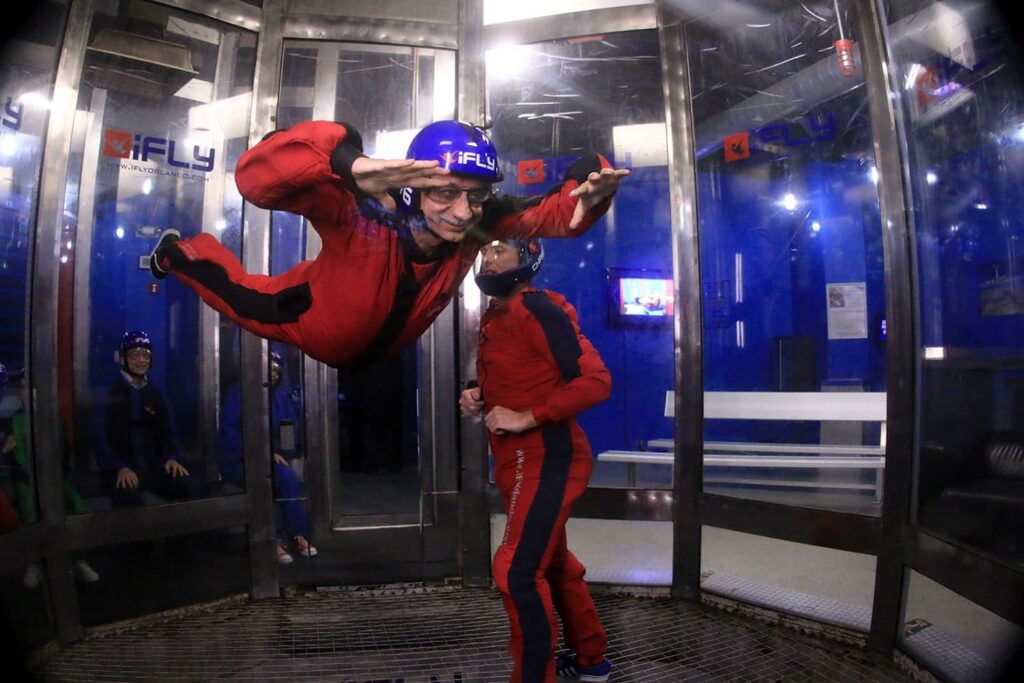
You had been a BS from the University of Maryland & MS George Washington University in mechanical engineering, If you could do it again, would you take a different academic path or you satisfied with the route you followed?
This is a very interesting question to answer. First, I must admit, there is no direct path connecting my current career at NASA to my educational goals when I was a student. As I mentioned earlier, my career goal was to become a fighter pilot. I was happily pursuing it in Lower Topa when I became unfit for flying due to my eyesight. My parents had already migrated to America while I was still in Lower Topa, and once unfit to fly, I was given the option to join my parents in the US. I exercised this option.
When deciding my educational path, I was still driven by the love of flying and figured I should study aeronautical engineering so that I can still work with jet planes. As I started my BS degree, it became apparent that job opportunities in aeronautical and aerospace engineering were diminishing. The Apollo program was coming to an end and there was no real vision NASA was pursuing. So, my advisor advised me to change my major to mechanical engineering. Out of all my courses, I enjoyed thermodynamics and heat transfer the best.
America was entering the energy crisis era and the government was focusing on commercializing alternate, renewable energy resources, such as solar and wind energy. These needs were in line with my BS training and I was encouraged to continue my master’s degree in the area of energy resources. It is by chance that NASA was in need of someone with heat transfer experience, which opened the door for me into NASA.
The point I am trying to make is that where I am today is because of the circumstances that ended up in my favor. There were several opportunities where I could have gone astray, making wrong friends, making wrong choices and pursuing a course of studies resulting in a different career. Who knows if that career would have been as exciting as the one I have now. So personally, I would not want to go back to my student’s days with the risk of making a wrong choice and not end up where I am today.
In Pakistan, only specific mindset have interest in Astronomy and commonly parents do not support their kids in astronomy as a profession, let us know how much you had been encouraged by your family during the early years of your career? Would you encourage your own child if he/she do prefer astronomy/astrophysics as a profession?
I think there are two aspects to this question. Parents are concerned about the livelihood of their children when they grow up. They are concerned whether their children will be able to earn a living and support a family. So, their tendency is to push their kids towards careers that are known to provide a good living. Unfortunately, most often their preferences are also tainted by the apparent status of certain careers in our society and ignore the interest and aptitudes of the children in areas that may not rank high in the status hierarchy in Pakistan.
It is very likely that if allowed to pursue their own interests, the children would really thrive in any careers, whether it be engineering, medicine, music, business, sports, etc. Taking astronomy as an example, even though there may not be too many job opportunities in astronomy in Pakistan, if a child is genuinely interested and has the right aptitude in the subject, encouraging him/her to pursue their passion may result in an illustrious career that might answer the most profound mysteries of the universe, possibly getting worldwide recognition. I recognize it is a tough choice for a parent. Especially in Pakistan where there is a stigma attached to certain careers and are discouraged by parents.
In my situation, I am not sure if my parents would have encouraged me to become the ticket collector for Naaz cinema but they definitely did not discourage me in pursuing my career in the air force. In the case of my children, I believe in allowing them to pursue their passion, be it astronomy, plumbing or driving a taxi. It is easy for me to say because in the US, there is generally no stigma attached to any career and a person can make a decent living in any job, as long as they are willing to work hard at it. And if one is in a career following their passion, it is easy to work hard at it.
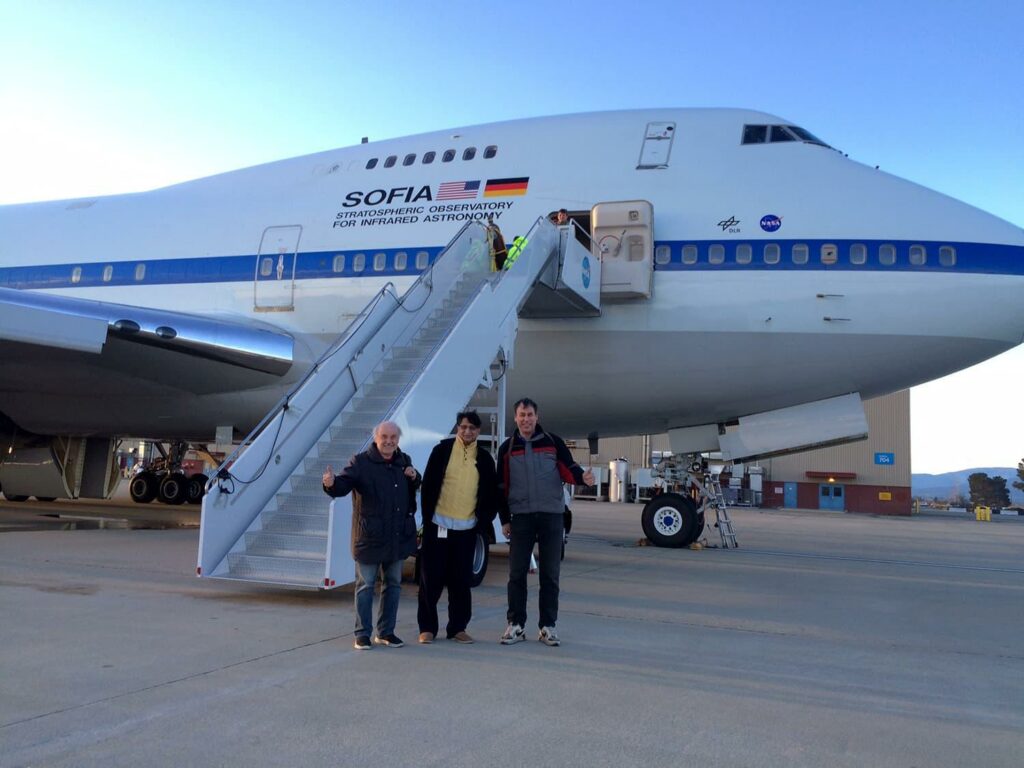
Do you think science could be made more popular and accessible in Pakistan if more scientific literature was available to the masses in Urdu?
I’m not sure if that will help any but it’s worth a try. In my opinion, the first step required is to create an environment where the population is trained to question everything before believing anything. My experience has been that our folks are very quick to accept any rumors, tales and conspiracy theories without logically analyzing it. In the current situation, unless you control scientific knowledge that is disseminated to the public, anyone can post erroneous scientific information and folks will believe it. Having an Urdu based outlet of science information would have to be carefully controlled to avoid misinformation.
JWT is infrared while Hubble is an optical telescope. What do you feel about the future of Hubble? Is it true that JWT got more importance than Hubble?
Hubble and JWST are equally important tools for answering astrophysics questions. Just like Hubble cannot see infrared light, JWST cannot see optical and ultraviolet light. Together they can solve more mysteries than either one can by itself. Hubble continues to be in perfect health. We predict that all its systems will still be functional until 2022 and most likely beyond. JWST will be launching in early 2019. The scientific community is eagerly awaiting when both of these amazing observatories will work for hand in hand.
How our knowledge has expanded via space-based astronomy with observations like Hubble & JWT?
Hubble has made amazing discoveries up to now. It has determined the exact age of the universe, it has proved the existence of black holes that were only theoretical before Hubble, it has observed gravitational lensing as predicted by Einstein and so much more. As it has answered so many questions, it has also introduced us to so many more mysteries that we didn’t know existed.
Dark matter and dark energy for example. Being an optical telescope, Hubble’s eyes reach a limit when looking for the oldest galaxies and stars. The older the galaxies, the faster they are moving away from us so their light reaches us in infrared (due to Doppler shift) and Hubble cannot see them. With James Web, we will be able to see those galaxies and determine how and when the very first stars in the universe were born.
Let us know about your services as a project manager for LISA, the mission that was a collaborative endeavor between NASA & ESA? What do Gravitational waves tell us & how would LISA implement our knowledge about the beginning, evolution & structure of the universe?
Up to now, all of our astrophysical discoveries have been done with analyzing the electromagnetic spectrum. The visible light, which human eye can see, and Hubble is optimized to see in this wavelength, is just a small subset of this spectrum. The spectrum ranges from radio waves at one end and very energetic gamma rays on the other end. We have satellites in space observing in most of these wavelengths and together they have informed our knowledge of the universe to date. But the electromagnetic spectrum is generated by the stars when they are born and start to emit electromagnetic radiation.
There were no stars at the time of the big band. Only elementary particles that coalesced together for form electrons and protons which in turn formed hydrogen. The hydrogen atoms started to coalesce to form blobs of hydrogen, eventually forming a mass large enough to have enough gravitational force to initiate hydrogen fusion in the core of this blog, thus igniting the blob into becoming a star that started to emit electromagnetic waves. This process took hundreds of thousands of years. So, there were no electromagnetic waves during this time. We call it the dark period because there was not light and as a result, we can only predict theoretically what happened during that period.
Gravitational waves, on the other hand, were generated right at the start of the big bang because mass always existed and mass creates gravity. LISA mission is being designed so that we can see the universe with gravitational waves. A completely new way of looking at the universe. With LISA, we will be able to look at the dark period from the very beginning of the big bang. We would also be able to see deep inside black holes where electromagnetic light cannot escape from. While we are in the process of building LISA, there are several grounds based gravitational observatories now coming into action already.
How long have you been serving for NASA? What advice do you have for your countrymen regarding your type of services?
I have been with NASA for almost 35 years. NASA is a government agency so I am a civil servant, doing this work on behalf of the American public. As a civil servant, one has to always keep in mind that we serve at the pleasure our population, who have contributed their hard-earned money to the government so that the entire nation can benefit from the work of the government. As a civil servant, it is an honor to be given this responsibility and we should do our utmost to work hard and honestly to fulfill our obligations to our public.
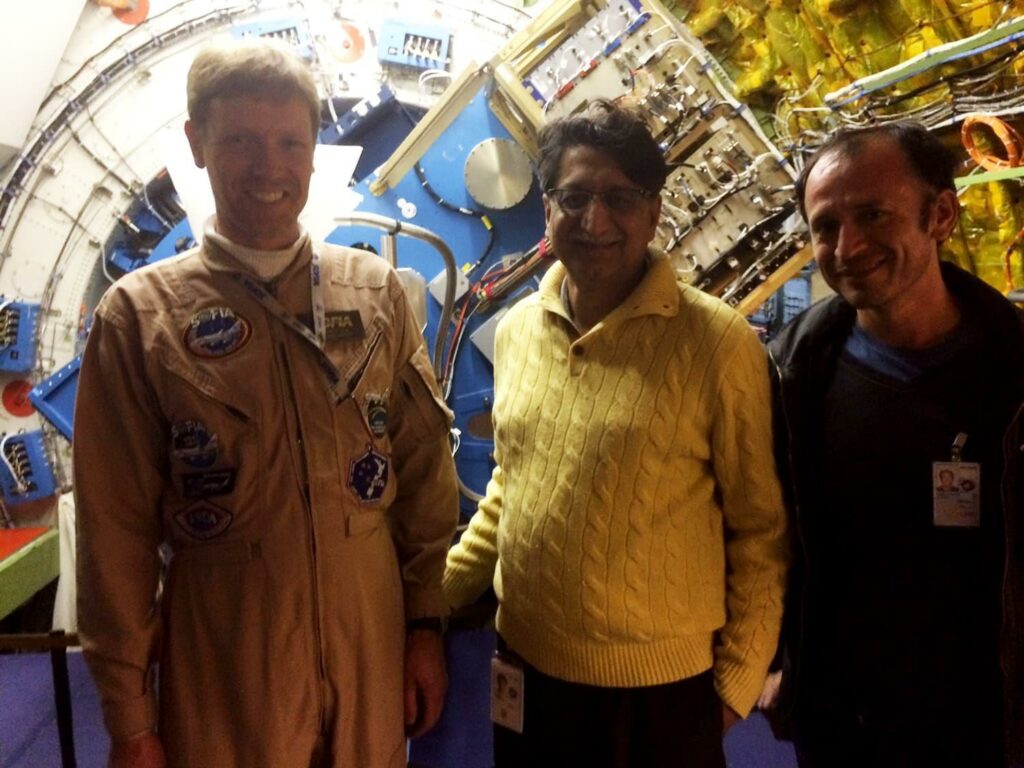
Have you encountered obstacles during your career, what is the most interesting thing about your job at Goddard Space Flight Centre, NASA, & what is the least?
I don’t think I can imagine a single dull moment during my career at Goddard. It has been amazing to be working on so many interesting and challenging projects with so many amazing scientists and engineers who are motivated and hard-working to meet the mission objectives.
We found an apparent dichotomy in Mansoor Ahmad, besides your arduous services for NASA, you have been directed sixteen short films and a movie. Let us know about your experience as Technical Director of the television show ‘Pakistan vision’. What’s harder getting started or being able to keep going?
I don’t see it as a dichotomy. My work at NASA is my career. Filmmaking is my hobby and not intended for earning a livelihood. It is very important for one to follow one’s passion. And it is not necessary that one should have only one passion. We should pursue all our passions. It is important to do that to feel complete. Pakistan Vision was a passion of a friend of mine, Mr. Saleem who was a pharmaceutical representative during the day and in his spare time wanted to develop a news and entertainment program for the Pakistani population in the Washington DC area.
My interest in the technical side of filmmaking and figuring out the right equipment for developing, editing and airing the show went hand in hand with Mr. Saleem. It was a great learning experience for both of us. This partnership evolved into us launching into the production of our feature-length film Bhool.
Do you think that cinema has the power to influence the minds, if so what should be the role of a filmmaker in a society like Pakistan?
I believe so. Cinema remains to be the most popular form of entertainment worldwide and especially in our country. So, I do believe the filmmakers have the moral obligation to honestly expose the issues facing the country as well as create material that minimizes the divide among us, whether it is political, religious, status, and gender. The filmmakers can help eliminate all kinds of stereotypes existing in our society.
As a filmmaker, how much did you compromise because of financial restrictions, how did you & your fellows manage time during the making of BHOOL besides professional responsibilities?
As I said earlier, filmmaking is my hobby and not a money-making endeavor. We took on this venture as a learning process. Other than buying the necessary equipment, there was no other expense. All the cast and crew were volunteers, following their own passions. The locations were obtained through favors by our friends and families. And frankly, we didn’t really know enough to know if we were compromising anything. And since we are our own customers, following our own schedule, we were free to mold the storyline based upon the available resources. It was only after we finished the film that we realized all our shortcomings.
Do you think that Pakistani University students are different from any American or other country students in capabilities and core skills like mathematics, reasoning, research, and analytical approach? What would you suggest to the new generation in order to cope with the challenges of time regarding space-based astronomy?
I had the privilege of meeting young students in several institutions in Pakistan. I must say I was very impressed by their curiosity, their intelligence and their interest in astronomy and astrophysics, even with the limited resources available to them in Pakistan. I was very encouraged to see that there was almost an equal number of girls as boys attending the talks. A lot of them were enrolled in Ph.D. programs in physics, which is not an easy subject. Some of them have found their own ways to continue research in astrophysics, especially in finding planets around other stars, which is the first step in finding life elsewhere in the universe.
I have made commitments to the leadership of these institutions that I will do my best in connecting these students with the scientists and engineers at NASA who can provide guidance to these young students in pursuing careers in space-based astronomy. I have already obtained commitments from NASA scientist to give periodic lectures by skype to the interested students in Pakistan.
Note A few parts of this interview published on Dawn.com in Jan 2018.
